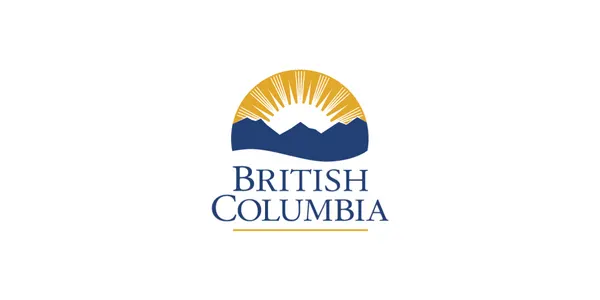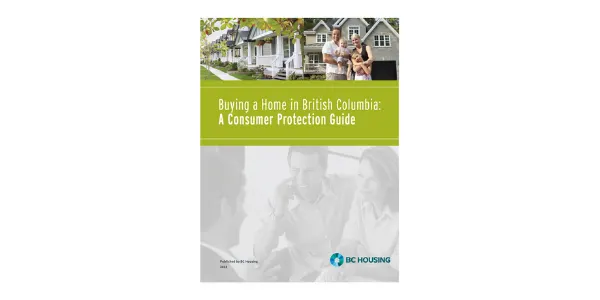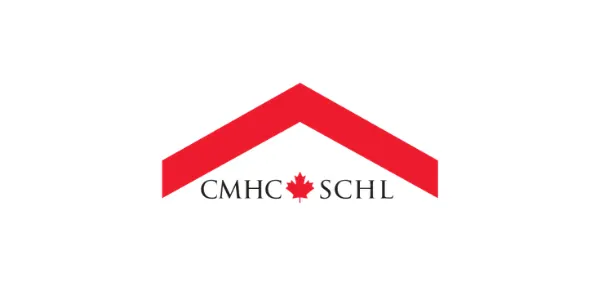Here are eight things to know before making an offer on a strata. First, strata refers to a way you can own property. Strata housing is a collection of privately owned units within a larger complex. Full video transcript.
Strata housing is an arrangement where you buy a home within a community. Owning a home in this way involves sharing, and owning, common space with others. Learn about the legal relationship you’ll be getting into, and what to watch for before making an offer to buy strata property.
What you should know
Strata refers to a way that you can legally own property. Strata housing is a collection of units contained in a larger building or complex. Each unit represents a private dwelling, legally a strata lot.
Though originally designed for apartment buildings, strata housing can take many forms. It’s not the size or shape of a development that makes it a strata. It’s the ownership structure. You can own a condo, townhome, duplex, and even a single-family house in a strata with others.
Strata is one of several legal structures for housing
Not all apartments, townhouses, and duplexes are set up as strata corporations. Various other legal structures can be used. Examples include housing co-ops, privately-owned rental buildings, or housing on First Nations reserve lands.
A strata development can be freehold or leasehold
If you have a freehold interest, you own your strata lot (that is, your private dwelling). Most stratas are freehold developments.
If your interest is leasehold, you buy the right to use the strata lot for a period of time. Think of it as long-term tenancy. You don’t own your housing unit, but you’re treated as an owner under strata property law. You must pay the monthly strata fees and other required expenses. And you have the right to sell your leasehold interest to someone else.
In BC, the Strata Property Act is the main law governing strata housing. The law tells you what you own (and how you own it) when you buy into a strata. It also says how the strata must be operated.
When you buy into strata housing, the following things happen:
You own your individual strata lot. Usually you own what’s contained within the walls, floors and ceilings of your unit. In practical terms, this is your private living space.
You become a member of a strata corporation. Through this strata corporation, you own common property and common assets, together with the other owners. You’re also responsible for common expenses.
Common property may include the building envelope, hallways, lobbies, roof, gardens, parking garages, and common recreational facilities. It may also include structural elements and mechanical and electrical services.
Common assets include things the corporation buys, such as a lawnmower.
The law says that the strata corporation is responsible for managing and maintaining the strata’s common property and common assets. They must do so for the benefit of the owners.
An elected council of owners performs the strata corporation’s duties. The council works like a board of directors. It handles the finances and arranges for the day-to-day upkeep of the strata — things like cleaning the gutters, shovelling snow, or fixing the roof. The council also enforces the strata’s rules and bylaws.
Larger stratas typically delegate the day-to-day
Many large developments hire a property manager. This person takes care of the day-to-day dealings of the strata. They also arrange the meetings and maintain the finances.
As an owner, you must help to pay for the strata’s common expenses. The strata covers its upkeep by charging monthly strata fees.
The fees are pooled into two funds:
The operating fund. The money from this fund covers frequent and ongoing costs. These typically include things like utilities, repair and upkeep, the strata’s insurance payments, and common amenities.
Contingency reserve fund. The strata sets money aside for larger expenses that happen less frequently, or for emergencies and other unexpected costs. Common examples include major renovations, replacing the roof, or snow removal after an unseasonably heavy snowstorm.
Other expenses
In addition to the monthly strata fees, be aware of the following expenses:
A special levy is money collected from owners for a specific purpose. These are typically required when the strata hasn’t set aside enough money for large or unexpected expenses.
There may be user fees for parking, storage or other facilities.
You may be charged for the amount of the strata corporation’s insurance deductible if something within your strata lot (such as a leaking toilet) damages other property. For more on insurance, see the common question on insurance below.
Strata lot owners must comply with the bylaws and rules of the strata corporation.
The bylaws set out owners’ rights and obligations. They’ll give you a good sense of how rigidly the strata corporation controls owners. Look for any pet, age, or rental restrictions. Ask yourself: will these be a problem for me?
The strata's rules say how common property and common assets can be used. Look for whether they restrict activities that might be important to you. For example, a rule may prevent you from parking a boat or RV in your parking spot.
Decide on buying into a strata
Because owning a strata property involves sharing, and owning, common space with others, there are additional things to consider beyond factors that apply in any home purchase. (To be clear: you need to consider these too.)
To start, make sure to review the following documents before making an offer to buy strata property.
The form B information certificate provides important information about the unit that’s for sale. It also tells you about the strata corporation. It should attach the current budget, rules, and a depreciation report. The BC government explains the information and documents that must be included with the form. The certificate provides a snapshot of the strata on the day it was issued. Keep in mind that financial obligations, strata fees, rules and bylaws can all change.
Review the strata's bylaws and rules carefully. See our discussion above, under what you should know, on what to look for.
Past minutes of meetings of the strata council, and general meetings of the owners, are very useful. They can tell you what recent issues the strata corporation has been dealing with (such as water leaks) or about expensive repairs coming up. They can also give you a sense of whether the council is proactive or tends to do the bare minimum. Ask for at least two years of minutes, and review them carefully.
The title to the strata lot can reveal limitations on how you can use the strata lot, or charges that may affect the strata lot’s value. The strata plan will show you the boundaries of the strata lot you're thinking of buying.
Check the details of your strata lot
Check the location, dimensions and area of your strata lot. Confirm the nature of your right to areas that you expect to have access to. These may include balconies, parking stalls, storage units, and other non-residential areas.
Monthly strata fees are a significant ongoing cost of ownership. What’s included in the monthly fees should be clearly outlined in the operating budget. For example, are utilities (hot water, heat and gas) covered?
The form B information certificate will tell you how much the monthly strata fees currently are. Compare the fees to similar developments:
If they seem high, take a close look at what they cover. Do the fees cover items you won’t use, or that won’t benefit you? Is the budget sensible or overly conservative?
If the strata fees seem low, consider whether the budget is adequate. Will you be asked to pay large lump sums for expensive repairs down the road?
Owners can be asked to pay amounts in addition to the monthly strata fees, such as through special levies. Review the financial statements and the budget of the strata corporation. Use these documents to assess the financial situation of the strata. Consider the following:
Is there enough money in the contingency reserve fund to cover the cost of major projects?
Check what, if any, new home warranty coverage remains on the unit.
What special levies and other funds has the strata approved? The contract of purchase and sale may say whether you or the seller has to pay for upcoming payments on special levies that have already been approved.
Your share of the common costs
Review the schedule of unit entitlement that determines your share of the common costs. This can be found on the strata plan. The unit you’re interested in might bear a higher proportional share of common costs because it’s larger than the other units.
Take a closer look at the unit you’re thinking of buying and the condition of the entire strata complex. If the development is in poor repair, you’ll help pay to fix it. This generally applies even if the repairs don't relate to your unit. Here are some ways you can investigate the physical condition of the property:
Review meeting minutes. Watch for anything that indicates potential costly expenses. Current or past problems may be flagged. As well, keep an eye out for signs of ongoing or threatened legal action.
Review the depreciation report for any expensive replacements, repairs or upgrades that have been recommended. You’ll find it attached to the form B information certificate.
Hire a home inspector to evaluate the condition of the unit and the common property. Find out how much of the common property they can (and will) examine. Consumer Protection BC has some helpful information on what you can expect from a home inspection.
You can hire a qualified engineer to inspect the major building systems. Ask the strata for copies of any engineers’ reports or building-wide inspections they've had done.
Be alert for signs of a leaky condo
In rainy BC, it's particularly important to know the state of the building envelope.
Before you buy a strata lot, try to picture what it’d be like to live within the particular community. A careful review of the minutes can reveal a lot about the strata. You might see noise complaints relating to a potential neighbour. There might be very strict enforcement of the bylaws, including how much you can personalize your unit.
Consider relationship dynamics. You may find evidence of recurring disputes, the existence of factions, or similar trends that concern you. Is there a licensed strata manager involved in meetings? How proactive does the strata council seem?
Our coverage of buying a home outlines key factors to consider and steps to take when buying any type of home. It covers the money you'll need, what to include in an offer to purchase, subject clauses, counteroffers, the cooling-off period, and the paperwork to complete the sale. These are all relevant when buying strata property.
Buying a strata lot involves risks and pitfalls that a notary or lawyer can help you avoid. Before making an offer to buy a strata lot, consider asking a notary or lawyer to review the contract of purchase and sale and other critical documents.
Another option is to add a subject clause to your offer. You can state that your offer is subject to a notary or lawyer's review of the strata documents. This way, if they find any red flags, you can get out of the deal.
Be wary of non-standard ways of buying a strata
Be very careful about rent-to-own, timeshare, and other non-standard ways of buying a strata lot. Don’t sign any agreement without legal advice.
Common questions
The law says that a strata corporation must obtain property insurance. This must cover the strata’s buildings, common property, and common assets. A large chunk of your monthly strata fees covers these insurance payments.
There are certain risks against which you may want to be personally protected. Otherwise, you may be on the hook for a large amount of money if something goes wrong. Consider the following situations:
The strata makes a claim. The strata’s insurance proceeds don’t cover the cost of damage. The strata asks the owners to make up the shortfall.
A flood in your unit damages common property. The strata corporation may charge the cost of the deductible to you, as the unit owner who caused the problem. These deductibles can be very high (such as $25,000, $50,000 or even $100,000).
A flood in your unit damages the unit next door. The strata’s insurance doesn’t cover damage to neighbouring units. The owner of the damaged unit may ask you to compensate them.
Are you covered for these, and other, risks? Ask the strata corporation for a copy of their current insurance policy to see what it covers. Consider what you’d like to be protected from. It’s a good idea to get personal insurance to cover the amount of any insurance deductible of the strata corporation which gets charged back to you.
Units in new strata developments are often bought “off the plan.” In legal terms, a potential buyer enters into a pre-sale contract with the developer. The buyer hands over a deposit. In exchange, the developer promises to build a unit for a fixed price. Some risks to buying off the plan include the following:
There may be delays in construction, or the development may not proceed at all.
The quality or size of the final unit may be different from what you expected.
A downturn in the market may occur. With pre-sale contracts, you pay a fixed purchase price (less the deposit) on a date in the future. If the market value of your unit drops, you’re still locked into the higher fixed price. If this happens and you were planning to borrow money, you may have difficulty securing a mortgage.
Pre-sale contracts are written by the developer’s lawyers and strongly favour the developer. Always get a lawyer to review the contract before signing. Or else say in the contract that your offer is subject to your lawyer being satisfied with the contract’s terms.
Assess, as best you can, whether the project will be completed by the date in the purchase agreement. Look at your financial situation. If there’s a downturn in the market, could you still afford to pay the purchase price?
The developer must give you a disclosure statement. Review it carefully. It explains what the developer is selling and describes your right to cancel the pre-sale contract within seven days of signing it. If the developer becomes aware that the disclosure statement contains any statements that aren’t true, they must give you a new or amended statement. If there’s a significant change that’s made you change your mind about the purchase, you may be able to pull out of the contract. You should get legal advice immediately (as this right may only last seven days).
Who can help

BC government website
Provides extensive information for strata owners and strata council members.

BC Housing Home Buyer's Guide
BC Housing offers a comprehensive guide on buying a home in BC.

CMHC Condominium Buyer’s Guide
Canada Mortgage and Housing Corporation has a guide to buying into strata housing.

BC Legal Referral Service
Helps you connect with a lawyer, notary or paralegal for a free 15- to 30-minute consult to see if you want to hire them.

BC Legal Directory
Search for a lawyer by community, area of law, or language spoken. From the Canadian Bar Association, BC Branch.


